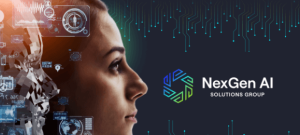
The year 2023 stands as a pivotal moment in the history of automation, a transformational force reshaping diverse facets of our lives. The world is currently in a phase of mitigation and rejuvenation, recognizing the imperative role of automation. Machine learning and artificial intelligence are at the core of this revolution, harnessing vast volumes of data to eliminate human errors and open up new horizons in employment. This piece will explore machine learning and its role in altering the world’s dynamics. And present a guide for aspiring enthusiasts looking to transition into professionals through machine learning courses.
The Transformative Impact of Machine Learning
The post-pandemic era has brought forth unprecedented challenges for society. It exposed the unpreparedness of the world in 2019, leading to economic crises, significant loss of life, and widespread unemployment.
Machine learning emerged as a beacon of hope in this critical juncture, not only eradicating human errors but also creating new employment opportunities for displaced tech professionals. The value of machine learning experts and the popularity of machine learning courses have surged in response to this global upheaval.
Revolutionizing Healthcare
The healthcare industry now relies heavily on vast datasets to develop personalized therapies and precision medicine. Analyzing extensive medical histories would be an insurmountable task without the support of machine learning entities. Moreover, remote wearable healthcare devices have gained broad acceptance. These devices continuously monitor a patient’s vital signs and can promptly alert AI or healthcare professionals to any abnormalities. In dire situations, they can even contact patients to warn them of impending health crises, providing a newfound sense of security for those at risk.
Data-Driven Marketing
In marketing, data is the driving force behind decision-making. Analyzing a wide range of data, from purchasing habits to investments, allows for the identification of high-value customers and the timing of their engagement. The engagement process itself is automated, with bots trained to analyze existing data and suggest products or services to potential customers. Furthermore, routine troubleshooting can be efficiently outsourced to machine learning, making marketing campaigns highly resource-efficient and streamlined.
Agricultural Advancements
Agriculture, a field deeply reliant on environmental factors, has also embraced machine learning. Factors such as climate, soil quality, and weather conditions can significantly impact agricultural outcomes. With the aid of machine learning tools, farmers can now access data-driven insights that help them make informed decisions. Automated systems, including applications and notification systems, provide real-time information regarding challenges and potential remedies, from selecting the right crop type to taking precautionary measures.
The Age of Self-Driving Vehicles
Self-driving cars are no longer a distant vision but a tangible reality. These vehicles can be trained through unsupervised learning, combined with advanced navigation systems to enable passengers to enjoy productive travel time while ensuring exceptional safety. With the elimination of human errors, self-driving cars are becoming a safer and more efficient mode of transportation. In addition, machine learning is playing a pivotal role in traffic management, providing advanced capabilities for monitoring and enforcing traffic regulations with minimal human intervention.
The Rise of Online Services
Software as a Service (SaaS) is gaining momentum in the digital landscape, with machine learning tools playing a central role in enhancing the user experience. Streaming recommendations, recurring billing, and payment reminders are now powered by machine learning algorithms. While the initial investment of time and resources to optimize these tools may be substantial, the long-term benefits in terms of efficiency and automation make them indispensable.
Joining the Machine Learning Revolution
Given the pivotal role that machine learning now plays in various industries, enrolling in machine learning courses offers a promising and lucrative career path. These courses equip individuals with the skills necessary to assume critical roles in sectors like traffic management and healthcare, where lives and property are at stake. The expertise required for such responsibilities can only be cultivated in a favorable learning environment that provides exposure to industry dynamics from an early stage.
Selecting the Right Machine Learning Courses
Industry Alignment: Opt for a course that aligns with industry standards and frequently updates its curriculum to keep pace with evolving trends.
Faculty Expertise: Courses administered by faculty members who have practical experience in the industry are invaluable. Practical insights can significantly enhance your understanding and readiness.
Realistic Promises: Be wary of courses that make grandiose promises. Look for programs that provide practical, achievable outcomes.
Industry-Aligned Institutes: Courses offered by institutions with strong industry connections can pave the way for internships and early exposure to the professional world. Enhancing your career prospects.
Net worth, a key indicator of financial stature, varies significantly across society, from the average individual’s modest assets to the colossal wealth of top entrepreneurs and celebrities, reflecting the diverse financial realities and achievements in various sectors.





